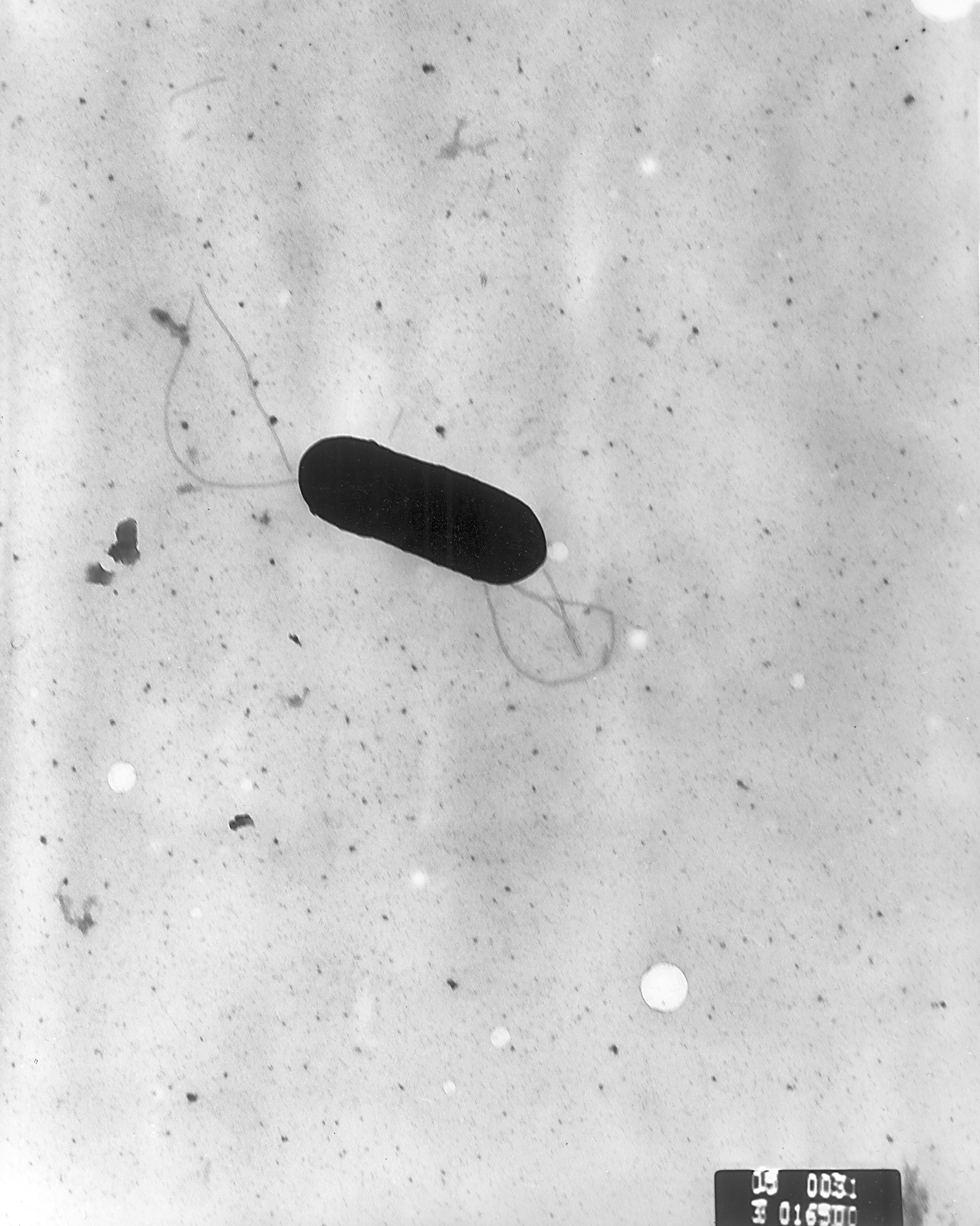Usually associated with severe food poisoning, the bacteria Listeria monocytogenes (shown above) can also be used to infiltrate cells. The scientists had previously noted that a non-lethal, attenuated strain of the bacteria (Listeriaat) was quickly cleared from healthy cells but not from tumor cells. They therefore decided to use Listeriaat to deliver a radioactive punch directly to cancer cells.
To test this technique, the researchers generated metastatic pancreatic tumors in mice. They infected the mice with Listeriaat and found that the bacteria accumulated only within tumor cells. Critically, the Listeriaat were found in metastases all over the body, not just at the site of the primary tumor. The scientists then used anti-Listeria antibodies to attach the radionuclide 188Rhenium (188Re) to the Listeriaat. 188Re was chosen for its short half-life (only 16.9 hours). Its attachment neither killed nor affected the infectivity of the bacteria, now called ‘radioactive Listeriaat’ (RL).
When cancerous mice were infected with RL, the number of their metastases decreased by 90%. Primary tumors also shrank by 64% after infection with RL. Most of the radioactivity within the mice was found in their metastases. There was no damage to normal tissues.
These data suggest that the bacteria are bringing their radioactive payloads directly to the cancerous cells. It is especially encouraging that the radioactivity is accumulating in and killing metastatic tumors throughout the body. These cells can be exceedingly difficult to identify, let alone remove or kill.
While these results are highly promising, one mouse study doth not a treatment make. Writing in Nature, Monya Baker has a list of critiques about the study, including the possibility that the technique will result in excessive levels of radiation throughout the body. We’ll have to see if further studies support the commencement of human clinical trials.
To test this technique, the researchers generated metastatic pancreatic tumors in mice. They infected the mice with Listeriaat and found that the bacteria accumulated only within tumor cells. Critically, the Listeriaat were found in metastases all over the body, not just at the site of the primary tumor. The scientists then used anti-Listeria antibodies to attach the radionuclide 188Rhenium (188Re) to the Listeriaat. 188Re was chosen for its short half-life (only 16.9 hours). Its attachment neither killed nor affected the infectivity of the bacteria, now called ‘radioactive Listeriaat’ (RL).
When cancerous mice were infected with RL, the number of their metastases decreased by 90%. Primary tumors also shrank by 64% after infection with RL. Most of the radioactivity within the mice was found in their metastases. There was no damage to normal tissues.
These data suggest that the bacteria are bringing their radioactive payloads directly to the cancerous cells. It is especially encouraging that the radioactivity is accumulating in and killing metastatic tumors throughout the body. These cells can be exceedingly difficult to identify, let alone remove or kill.
While these results are highly promising, one mouse study doth not a treatment make. Writing in Nature, Monya Baker has a list of critiques about the study, including the possibility that the technique will result in excessive levels of radiation throughout the body. We’ll have to see if further studies support the commencement of human clinical trials.

Please tell where in States I can get a treatment following this article for my Mom she is critically fells bad affected by pancreatic cancer with metastazes
ReplyDeleteThanks very much
Appreciate Your assistance
Sergei
free.be42044@gmail.com
It is worth my time. At first I cannot understand the meaning of your blog title but after I've read everything I have understood everything. Thank you for sharing!
ReplyDelete